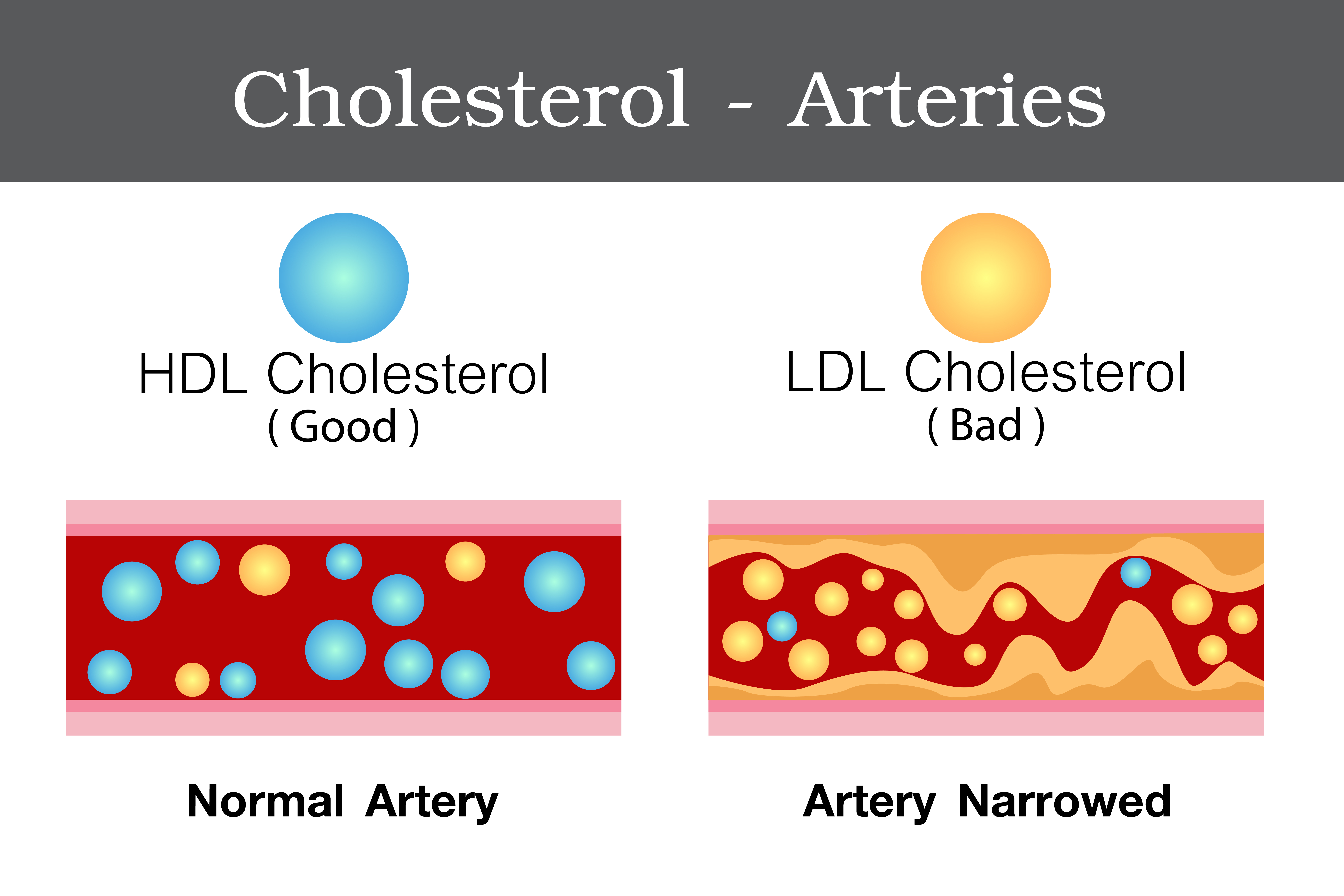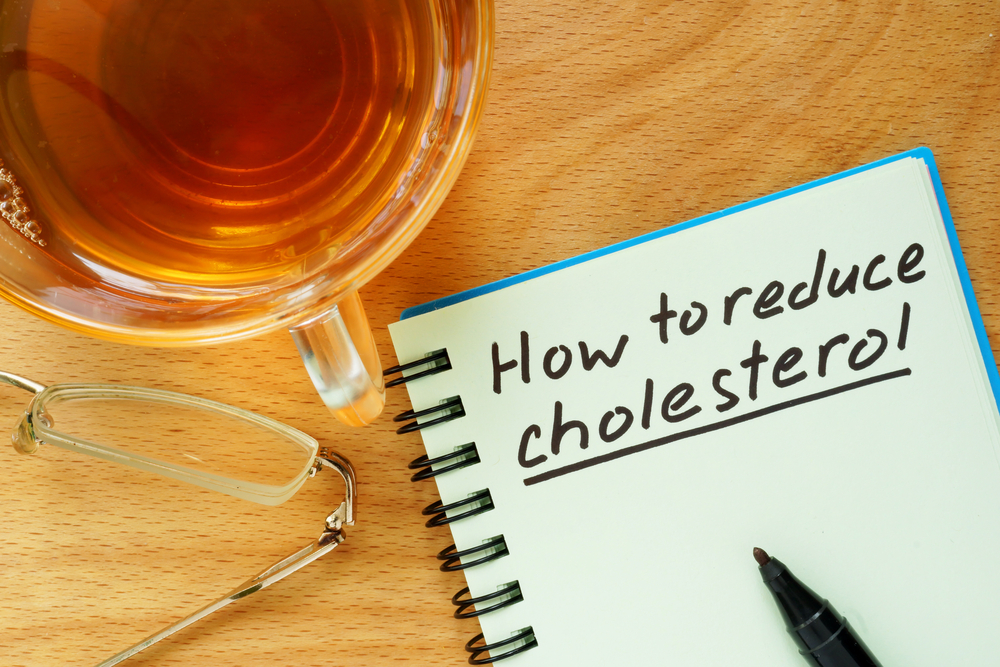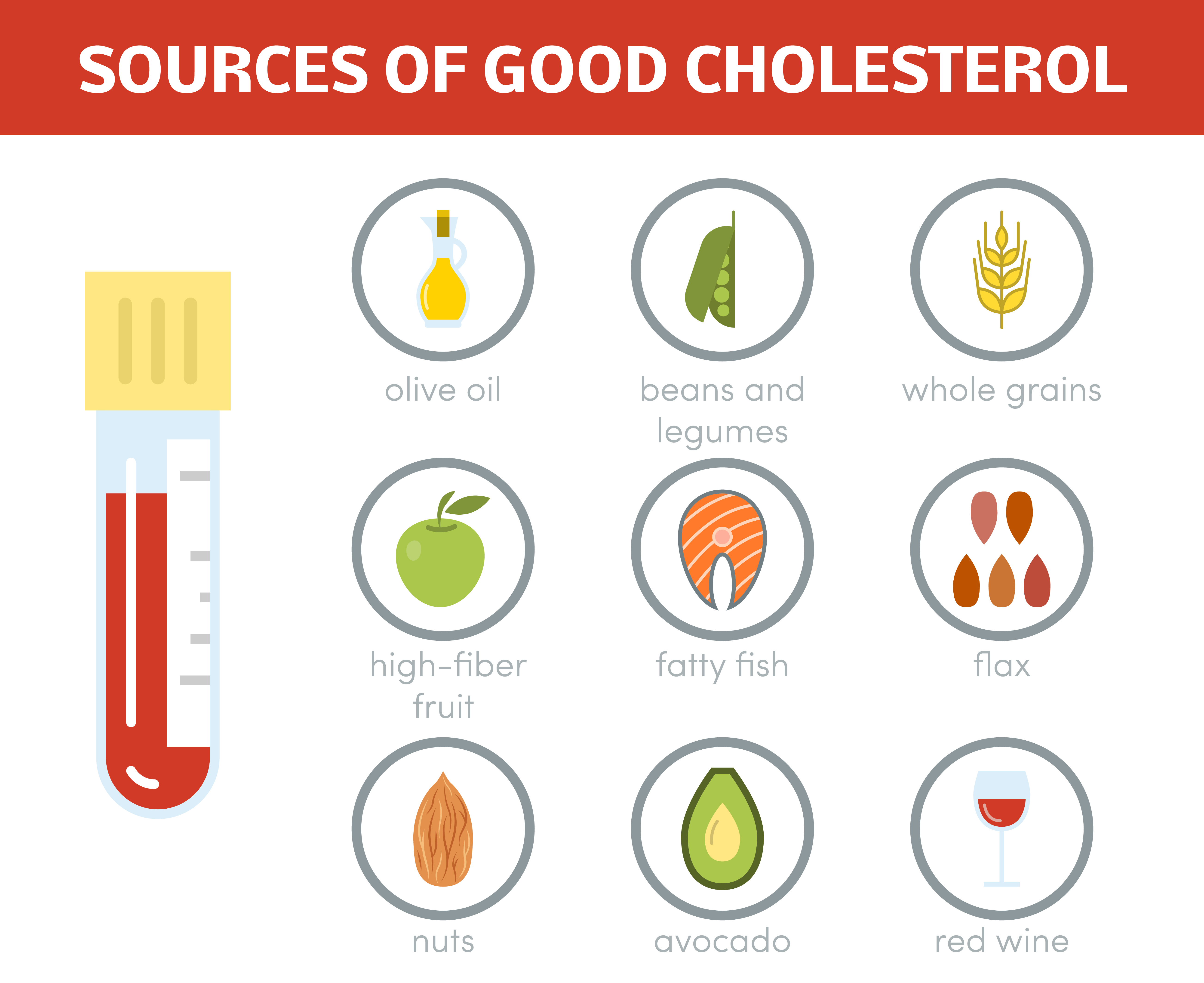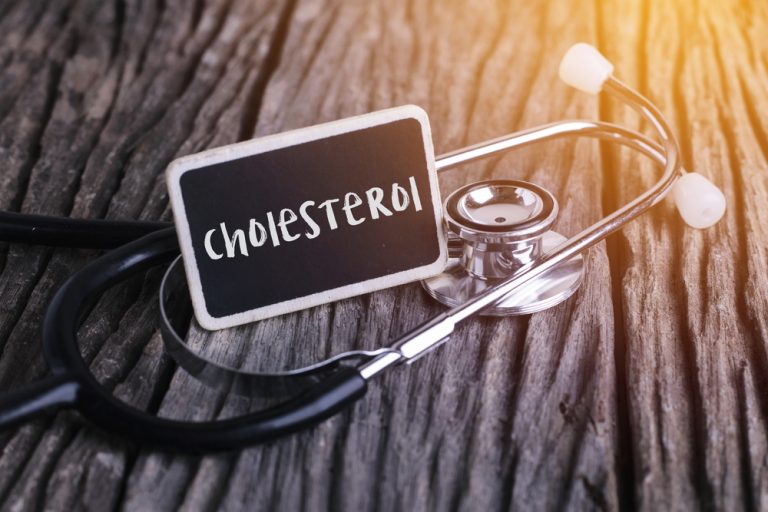What do you know about cholesterol? I’m guessing that you have heard about it in the press, from a family member or colleague, from your GP. There has been a lot of discussion about cholesterol and how it is important to keep your cholesterol levels low and how best to achieve this. It could be argued that there are many health practitioners who actively promote the use of statins to keep blood cholesterol levels down, but is this the best method? Not everyone wants to pop a pill every day when potentially a healthy diet and lifestyle can keep your cholesterol levels in check and your risks of cholesterol related illness low.
What is cholesterol?
It’d not all bad news. Our body actually needs cholesterol in order to function properly. Cholesterol is a fatty molecule which belongs to a group of chemicals known as steroids. It’s essential for the structure of our cell membranes, cholesterol provides a form of mechanical support for the cell membrane to help it keep its shape and function. Cholesterol is also a precursor molecule for the manufacture of vitamin D, steroid hormones such as oestrogen, testosterone and cortisol, and bile salts (The Open University, 2006).
Cholesterol is produced by the liver and only about 20-25% comes from our diet, however it could be argued that modern diets have seen blood cholesterol levels rise to unhealthy levels, such that the liver is unable to control levels properly. Cholesterol is transported in the blood attached to lipoproteins. You may be familiar with the terms LDL and HDL.
LDL is Low Density Lipoprotein (also known as ‘bad cholesterol’) and HDL is High Density Lipoprotein. The ratio of HDL to LDL is associated with risk of atherosclerosis, the deposition of fat in the arteries. The greater the proportion of HDL the lower the risk, this is because HDL transports surplus cholesterol from cells to the liver to be broken down. (The Open University, 2006)
In order to minimise risk of developing cardiovascular disease (heart attack, chest pain and stroke) it is recommended that total blood cholesterol levels are kept below 5.0 mmol per litre, with LDL levels below 3.0 mmol per litre (NHS, November 2019). Unsaturated fatty acids increase the proportion of HDL thereby lowering blood cholesterol levels, whereas saturated fatty acids increase the proportion of LDL and therefore raise blood cholesterol levels.

How diet can help reduce cholesterol levels
As mentioned consuming unsaturated fats can help with lowering cholesterol levels and too much saturated fat increases cholesterol levels. Saturated fat is mainly found in animal products such as fatty meat, full fat dairy products, butter, lard and ghee, but it is also found in plant based products such as coconut and palm oils. Unsaturated fats are mainly found in plant based products such as nuts, seeds, avocados, vegetable oils and spreads, but are also in oily fish such as salmon, mackerel and herring.
According to Heart UK (2019), following their Ultimate Cholesterol Lowering Plan (UCLP), can help with lowering cholesterol and reduce risk of cardiovascular disease. The plan recommends following a set of simple steps to ensure your diet is as heart healthy as possible. Swapping foods high in saturated fat for those either low in saturated fat or high in unsaturated fat is a key action. For example, swapping butter for a vegetable based spread, removing all visible fat from meat prior to
Eating and keeping red meat consumption to no more than 500 g per week, swapping full fat milk for skimmed or a plant based milk, cut down on consumption of cakes, biscuits and pies, and changing cooking methods to use less or no fat. Whilst these recommendations may seem challenging, they can be adopted quite simply into everyday life and can still deliver tasty food with some thought by using for example more herbs and spices and switching to tomato based sauces and away from cream based.

In addition to moving away from saturated fats and towards unsaturated, other heart healthy diet tips should be followed. Ensuring you consume at least 5 portions of fruit and vegetables a day, try to have at least 30 g of fibre each day by consuming wholegrains (pasta, rice, bread for example) and introducing more plant based proteins to your diet such as beans and pulses. Try adding a variety of beans or lentils to soups, stews, salads or curries. If you need a snack try a handful of mixed unsalted nuts, they are nutrient packed and make you feel fuller for longer.
Try to avoid foods that are high in salt and sugar as well. Cutting down on ready meals and takeaways will have an immediate effect on your consumption of salt and sugar. Portion size is also important, keep portions of meals to sensible levels and try not to over eat, especially if you are already full. Learn to know when you have eaten enough.
Foods that have a direct effect on lowing cholesterol
In addition to swapping saturated fat for unsaturated fat, Heart UK recommends anyone wanting to lower cholesterol levels should include some or all of the following food products in their diet on a regular basis;
Soya Foods such as tofu, soya mince, edamame beans, soya drinks and yoghurt. Soya foods tend to be naturally low in saturated fat and can help manage cholesterol levels if used to replace red meat.
Nuts and seeds are naturally high in unsaturated fats and consuming a handful of mixed unsalted nuts daily helps lower cholesterol levels.
Plant sterols and stanols are naturally found in plants in small amounts and when consumed at between 1.5 g – 3.0 g per day have been shown to lower cholesterol. Look for fortified spreads, but be careful not to over consume.
Oats and barley contain the soluble fibre beta-glucan that attaches to cholesterol in the gut (as released in bile salts) and removes it from the body. Eating a bowl of porridge every morning is great for many reasons not least for its cholesterol lowing effects.
There are of course some exceptions where diet might not have a significant effect on cholesterol levels, and this is in the case of familial hypercholesterolemia (FH). This condition is a genetic disorder where the body is unable to remove LDL cholesterol from the blood resulting in high levels remaining in the blood and potentially causing blockages in arteries. In this case it can be recommended that a sufferer takes statins to control their blood cholesterol levels. According to Samuel Gidding of FH Foundation (2018, October) sufferers of this genetic disorder should also follow a heart healthy diet, but normally this is not enough to control the condition and medication is usually advised.

Statins
I will not in this blog talk too much about statins, but people with high cholesterol should be aware that there is medication available to help control their levels. As a nutritionist I would always first recommend a dietary approach to controlling blood cholesterol, but any sufferer should consult
their GP for full and proper medical advice, especially if you think you may suffer from FH. You may also find it useful to visit the NHS website that provides further information about statins and why you may be advised to take them to control your cholesterol levels and reduce risk of cardiovascular disease. https://www.nhs.uk/conditions/statins/
Conclusions
Heart UK have published a plan to help reduce cholesterol levels, it focusses on diet and lifestyle changes which includes easy food swaps and following a healthy balanced diet. It’s important to maintain low total and LDL blood cholesterol levels in order to reduce risk of developing cardiovascular disease which includes heart attack, chest pain and stoke. A diet approach is always recommended, but in some cases like for sufferers of FH the addition of stains may be necessary.
References:






